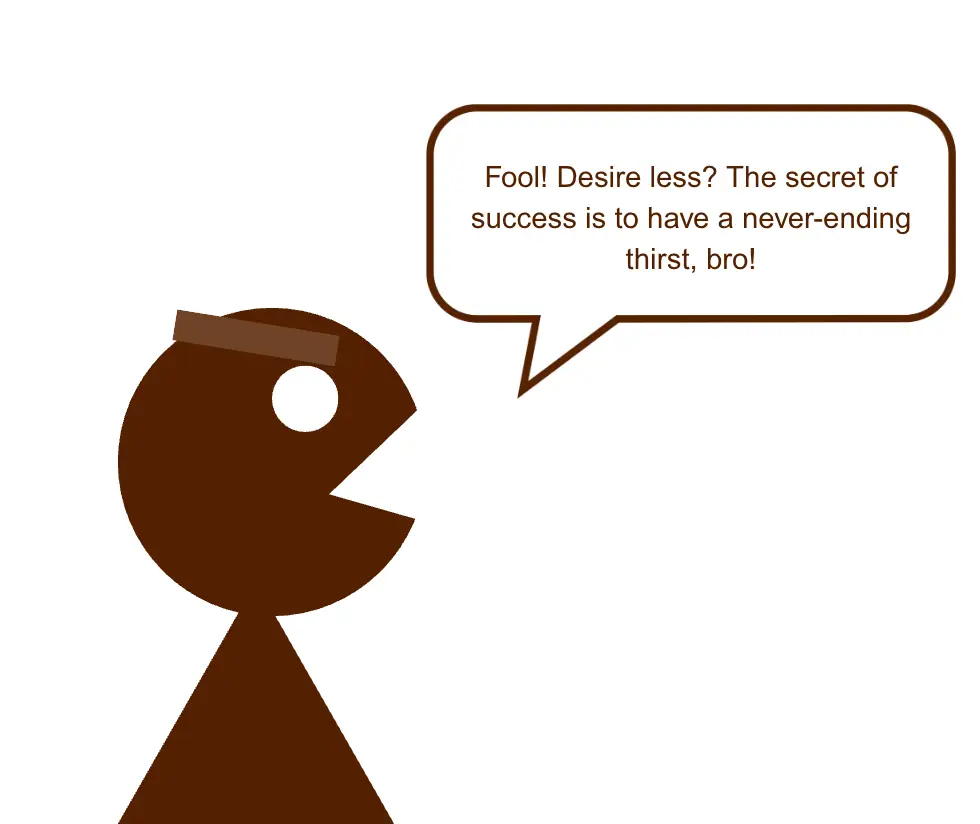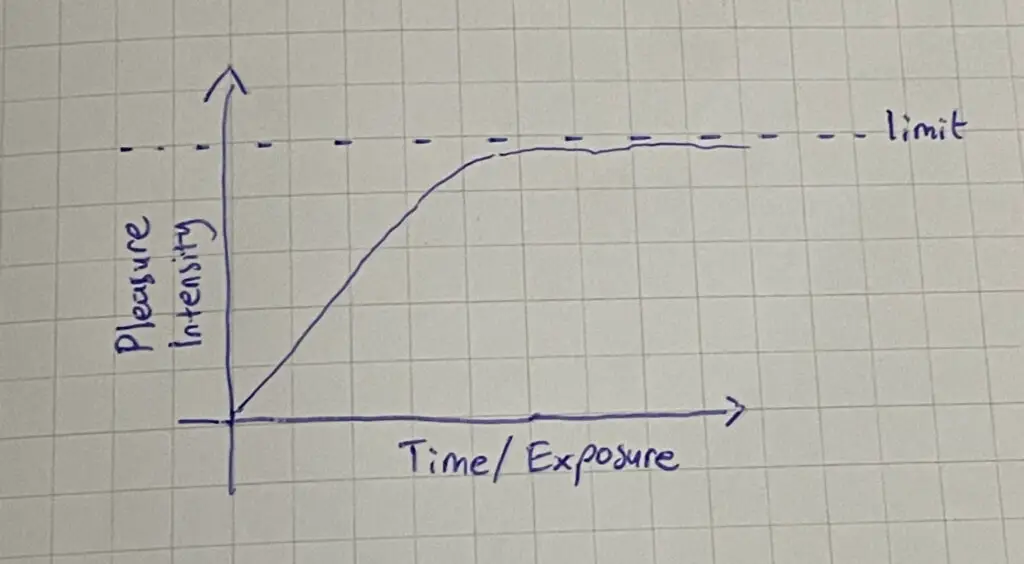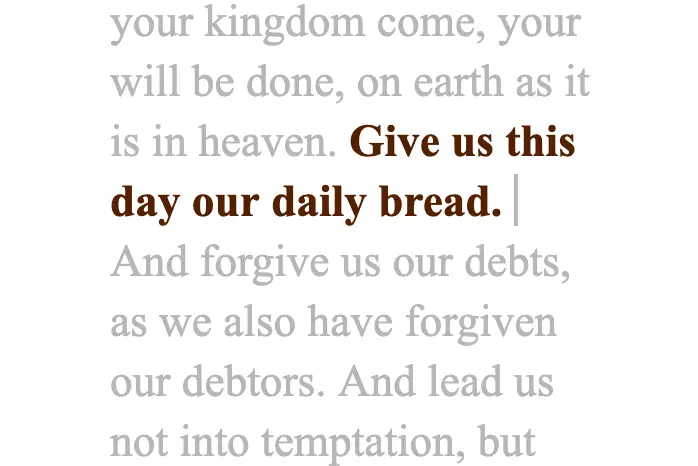The beauty of being truly rich is about how little you need, not how much you have.
The rich man is not the one who has collected many possessions but the one who needs few possessions and the poor man is not the one who has no possessions but the one who has many desires.
–Saint John Chrysostom
Reading this quote definitely triggered some hustlers.

What is EPJ? (You can skip this part if you already know what this series is about.)
EPJ stands for Everyday Pilgrim Journal. If you’re new to this series, check out the first entry I wrote here. In short, I am here to explore the beauty inherent in everyday life, to understand the recurring theme of beauty through seeming foolishness. This is a theme exemplified by Christ, a “foolish” carpenter who claimed divinity and then faced brutal execution by crucifixion. Yet his followers insisted they witnessed his resurrection, and his influence remains too massive to ignore even today.
This paradox of Christ, that he is considered the “ultimate beauty” and the “ultimate fool” is what many great people over the centuries have grappled with. Even as the modern world tries to silence or diminish this wonderful figure, I am compelled to show that it is impossible to do so. I want to look at the details of everyday life through the perspective of humility. This way, I can uncover glimpses of the intuitive, mysterious beauty that Christ’s life and legacy continue to inspire.
Aight, calm down. By the opening quote, it’s clear that I’m going to discuss gratitude. But what kind of gratitude? Our modern culture is treating gratitude as a pathetic coping mechanism for lazy people. This is wrong! Let me tell you what I mean.
These are what emerge in today’s generation’s minds when we talk about gratitude:
- Gratitude means I should stop working hard because I won’t be able to achieve what that person has achieved
- Gratitude means to stop desiring what they have because I’m a worthless human being who does not deserve nice things at all
These definitions are dangerously stupid and ignorant. Being grateful does not limit us to advancing and being successful in life. In fact, it can help us progress and enrich our lives.
Here are the key points.
1. Our Ability to Feel Pleasure is Limited
Pleasure is not something that can be experienced endlessly.

Have you ever heard about people with extreme, ungodly kinks? This usually happens because they’re bored with regular intimacy and then slowly descend to weirder fetishes. The same happens with food, video games, and anything else. There is a saturation point where we cannot experience more pleasure in something. This capacity differs with each person, but the point here is that there’s a natural limit.
2. Our Time is Limited
We cannot experience every life experience. No matter how much you achieve, every achievement has a bigger, shinier competitor. Unfortunately, we don’t live forever to experience all of it. By not being grateful, we’re hopelessly fighting time.
So how are these relevant to being grateful? These are just simple common sense!
That’s exactly the point! Being grateful should be cultivated by common sense. It isn’t about giving up on ambition or settling for less. It’s about understanding and embracing these fundamental limitations to truly enrich your life.
When we realize our capacity for pleasure is limited, and our time even more so, we can stop chasing an endless parade of “more.” Instead, we can focus on appreciating what we do have, and what we can genuinely enjoy. This doesn’t mean becoming less ambitious, it means becoming intentional about what we pursue.
There’s this beautiful part of The Lord’s Prayer, as found in Matthew 6:11: “Give us this day our daily bread.” This isn’t a prayer for a mansion, a yacht, or a garage full of luxury cars. It’s a humble request for what is sufficient, for what is truly needed and can be digested. It’s a profound recognition of our limits, and a beautiful act of trust in provision.
This humble desire for “daily bread” is about asking for just enough, for what we can truly comprehend and digest. It’s about recognizing that each person’s capacity for indulgence is unique. No two life experiences are the same, no matter how many of Andrew Tate’s cars we try to copy and possess. The beauty lies in realizing that true richness isn’t about having everything someone else has, but about having enough for you, and truly appreciating that. It’s about finding satisfaction within your own unique limits, and that, my friend, is where real wealth lies.
For our money is the Lord’s, however we may have gathered it. If we provide for those in need, we shall obtain great plenty. This is why God has allowed you to have more, not for you to waste on prostitutes, drink, fancy food, expensive clothes, and all the other kinds of indulgence, but for you to distribute to those in need…. If you are affluent, but spend more than you need, you will give account of the funds which were entrusted to you… for you obtained more than others have, and you have received it, not to spend it for yourself, but to become a good steward for others as well.
–Saint John Chrysostom
This final quote by Saint John Chrysostom really brings it all home. It’s not just about what you don’t need, but what you do with what you have. It challenges us to look beyond our own desires and see how our resources can serve a greater purpose.
So, how do we tie this all together? It’s about asking simple, powerful questions every single day:
- What can I use today to help others?
- What can I use today to help myself toward my noble goal?
- What’s necessary for today’s hard work to be done correctly?
That’s precisely what you should strive for. That’s what desiring less truly means. That’s being rich! It’s not about emptying your life, but about filling it with purpose, generosity, and intentional effort. It’s about recognizing that true wealth isn’t measured by how much you gather, but by how wisely you use what you’ve been given for the good of yourself and others. And in that simple understanding, you find true abundance.


Leave a Reply